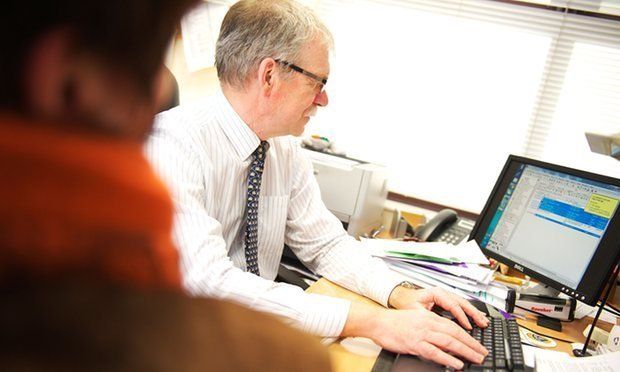
The level of understanding about anxiety never ceases to disappoint me. So, the wonderful article points out that those who worry about their health are making themselves unwell. No, not just unwell but at risk of heart issues... and probably a heart attack. Genius. So where does this now leave the individual with health anxiety. Well, the highly educated, well spoken psychiatrist I listened to today on LBC radio today, told us all that people simply shouldn't worry. If you are ill go to the GP or if you have a symptom which you are worried about.. just learn to tolerate them. Live with them. Otherwise ... its the jump leads for you (I am paraphrasing a little there). If only we had known it was that simple.. phew. Er.. just now worry you say... On all possible levels this shows a complete lack of understanding and a total generalisation of the issue. By telling someone who is truly suffering with health anxious they are putting themselves at risk of experiencing a heart attack by worrying about having a heart attack, has just initiated a terrible cycle of fear. A spell of rumination about dying and constant checking of their bodies and health. Their worst fears are truly coming to life and now they have proof! The fact they are anxious, is now the proof of the pending trip to the hospital. Those who suffer constant fear of being ill are really living with a mix of symptoms, very akin to OCD (obsessive compulsive disorder). You see, if you follow a persons fear of illness to it's natural conclusion, inevitably you find there is a fear of dying (I guess that's logical). However, with severe health anxiety, underneath the immediate worry, tends to be a superstitious belief that it's their destiny to get ill. Sods law, bad luck, Murphy's law and the like. It's not really about the illness (as such) it's about what being ill means, what they will lose, who they will hurt. Someone could visit the GP and be told the lump isn't cancer a thousand times (and very often this is the case). This only abates their fear for a small amount of time as this isn't really the problem. They believe it really is an illness (and always the worst possible kind) because they think it has to be for them. The problem is the FEAR of being ill, not just the being ill, and more importantly, what being ill represents to them. Who will they hurt, leave behind, miss out on or let down if they died. Maybe there is unfinished business or missed opportunities illness would destroy? All i'm saying is, just not worrying isn't really going to cut it in my humble opinion. If you or someone you know is experiencing Health anxiety, therapy is going to be the best course of action. To get over something like this, you must understand how the health anxiety works and why you have it in your life. You then need clear rationale to treat it. For more information click back into the site and send me a message.

In all my years as a physical trainer, it was very familiar to me (thankfully) to be told by my clients that they 'felt' better after a training session. They 'felt' a sense of achievement they would add, and typically, over the duration of an hours walking, running, cycling we would naturally talk and discuss what was on their mind which always seemed to help. With so much anecdotal evidence combined with study after study supporting the idea (both from a physical activity stand point and mental health) that exercise and physical activity helps people to cope better with stress, lowers anxiety and improves mood and depression; it is bewildering to me that mental health/therapy appointments still remain in little box consultation rooms (without natural light most of the time, or with just a view of the car-park for stimulation) and physical trainers (in general) having little to no real training in mental health, continue to try their best to listen to peoples issues and blast away stress with pure physical activity. Although exercise remains a fantastic activity to engage with, this isn't so good if you suffer social anxiety and the gyms a little busy or you suffer panic and the symptoms of exercise could be triggers for you.. Without expert help, this really isn't going to go well and very often the trainer wouldn't understand these factors. To me it seemed a no brainer that (where appropriate), with my unique combination of experience and skills, therapy sessions could and should be conducted on the move. Why not talk about overcoming obstacles and challenge negative beliefs with an oxygenated brain, positive hormones in the system? Have the best of both worlds; a fully qualified fitness trainer to manage a walking session and motivate you to move whilst you talk? An hours activity will never go as fast I assure you. You could be gaining the best in mental health care and real up to date, cutting edge therapeutic support by a cognitive behavioural psychotherapist in one go. This is whilst burning calories (if required), breathing some fresh air (in general), getting out of your home or office and even seeing a little of your surroundings whilst improving your mental well-being. Worth a thought? Please remember though, this service is an option. It's not always appropriate or wanted and that's absolutely fine. It's here if you want it.

Anyone can make one: For better or worse, anyone can write a blog post about anything they want. Everyone has a voice and the best voices will rise to the top. The writer can show their personality: In blog posts, the writer has more leeway to add in their voice and personality than other types of writing. Blogs are a great form of mass communication: You can help people, learn new things, entertain your audience—the possibilities are endless and amazing. Blogging opens up all of these to a very wide audience. You can make money: Get the right blog going and you can make a lot of money through advertising and sponsored posts. It allows people to craft better thoughts: Instead of reading haphazard, uneducated Facebook statuses, it’s much better to see people’s thought process in a well-written blog post. You can establish a community: Blogging allows you to connect with other individuals who share the same interests. Sharing ideas and opinions within your community helps establish yourself as a thought leader. Good for SEO: Keeping content on your site fresh and relevant, you can use your blog to boost the search engine ranking (SEO) of your site and your business. It brings people back to your site: If your blog is strong enough and updated regularly, people will come back looking for more and bring traffic back to your site as well. It’s free: It costs you a grand total of zero dollars to post to the blog, so if you have something to say, there’s nothing to stop you. You can establish yourself as a thought leader: A blog is a great place for your original thoughts, and it can be a wonderful way to show off your individuality. If people like your ideas, you can become a thought leader in your industry! What else do you love about blogs? Let me know!

The level of understanding about anxiety never ceases to disappoint me. So, the wonderful article points out that those who worry about their health are making themselves unwell. No, not just unwell but at risk of heart issues... and probably a heart attack. Genius. So where does this now leave the individual with health anxiety. Well, the highly educated, well spoken psychiatrist I listened to today on LBC radio today, told us all that people simply shouldn't worry. If you are ill go to the GP or if you have a symptom which you are worried about.. just learn to tolerate them. Live with them. Otherwise ... its the jump leads for you (I am paraphrasing a little there). If only we had known it was that simple.. phew. Er.. just now worry you say... On all possible levels this shows a complete lack of understanding and a total generalisation of the issue. By telling someone who is truly suffering with health anxious they are putting themselves at risk of experiencing a heart attack by worrying about having a heart attack, has just initiated a terrible cycle of fear. A spell of rumination about dying and constant checking of their bodies and health. Their worst fears are truly coming to life and now they have proof! The fact they are anxious, is now the proof of the pending trip to the hospital. Those who suffer constant fear of being ill are really living with a mix of symptoms, very akin to OCD (obsessive compulsive disorder). You see, if you follow a persons fear of illness to it's natural conclusion, inevitably you find there is a fear of dying (I guess that's logical). However, with severe health anxiety, underneath the immediate worry, tends to be a superstitious belief that it's their destiny to get ill. Sods law, bad luck, Murphy's law and the like. It's not really about the illness (as such) it's about what being ill means, what they will lose, who they will hurt. Someone could visit the GP and be told the lump isn't cancer a thousand times (and very often this is the case). This only abates their fear for a small amount of time as this isn't really the problem. They believe it really is an illness (and always the worst possible kind) because they think it has to be for them. The problem is the FEAR of being ill, not just the being ill, and more importantly, what being ill represents to them. Who will they hurt, leave behind, miss out on or let down if they died. Maybe there is unfinished business or missed opportunities illness would destroy? All i'm saying is, just not worrying isn't really going to cut it in my humble opinion. If you or someone you know is experiencing Health anxiety, therapy is going to be the best course of action. To get over something like this, you must understand how the health anxiety works and why you have it in your life. You then need clear rationale to treat it. For more information click back into the site and send me a message.

In all my years as a physical trainer, it was very familiar to me (thankfully) to be told by my clients that they 'felt' better after a training session. They 'felt' a sense of achievement they would add, and typically, over the duration of an hours walking, running, cycling we would naturally talk and discuss what was on their mind which always seemed to help. With so much anecdotal evidence combined with study after study supporting the idea (both from a physical activity stand point and mental health) that exercise and physical activity helps people to cope better with stress, lowers anxiety and improves mood and depression; it is bewildering to me that mental health/therapy appointments still remain in little box consultation rooms (without natural light most of the time, or with just a view of the car-park for stimulation) and physical trainers (in general) having little to no real training in mental health, continue to try their best to listen to peoples issues and blast away stress with pure physical activity. Although exercise remains a fantastic activity to engage with, this isn't so good if you suffer social anxiety and the gyms a little busy or you suffer panic and the symptoms of exercise could be triggers for you.. Without expert help, this really isn't going to go well and very often the trainer wouldn't understand these factors. To me it seemed a no brainer that (where appropriate), with my unique combination of experience and skills, therapy sessions could and should be conducted on the move. Why not talk about overcoming obstacles and challenge negative beliefs with an oxygenated brain, positive hormones in the system? Have the best of both worlds; a fully qualified fitness trainer to manage a walking session and motivate you to move whilst you talk? An hours activity will never go as fast I assure you. You could be gaining the best in mental health care and real up to date, cutting edge therapeutic support by a cognitive behavioural psychotherapist in one go. This is whilst burning calories (if required), breathing some fresh air (in general), getting out of your home or office and even seeing a little of your surroundings whilst improving your mental well-being. Worth a thought? Please remember though, this service is an option. It's not always appropriate or wanted and that's absolutely fine. It's here if you want it.



